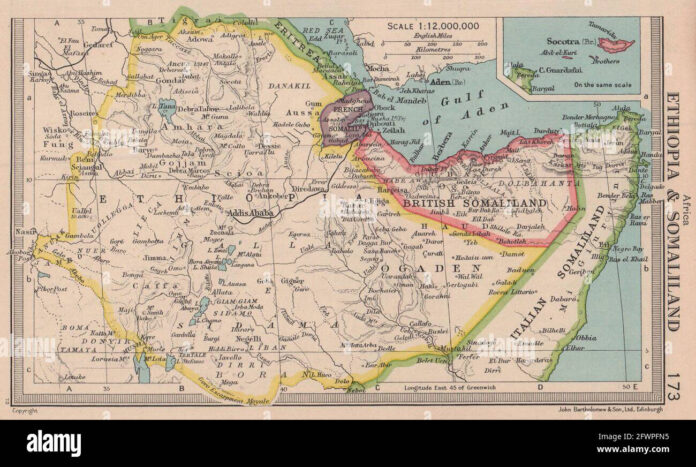omaliland was older country than Somalia in Africa for achieving independence before Somalia in 1960 as its proclamation of independence shows below. Somaliland British Protectorate became independent on June 26, 1960 while Italian Somalia became independent on July 1, 1960. Somaliland achieved independence before Mauritania, Nigeria, Senegal, Gabon, Chad, Ivory Coast, Burkina Faso, Benin, Sierra Leone, Uganda, Kenya, Algeria, Zambia, Zimbabwe, Namibia etc. But OAU still holds up Somaliland recognition without reasonable justification.
The independence and recognition of Somaliland would be based on its colonial borders of Somaliland British Protectorate and would not influence secessionism or separatism in Africa but would enhance the Declaration of African Conference of 1964 for reaffirming African colonial borders to keep the continent secure, peaceful and stable. African borders are based on land, not on tribal lineage, and that is why subclans of same clan inhabit in different countries because of colonial demarcations and the Declaration of African Conference of 1964 for reaffirming African colonial borders prevents the rise of tribal or regional disputes that could dismantle countries in Africa. In Africa, colonial borders define territory, nation, independence and recognition.
In fact, OAU itself violated that African Declaration of 1964 for reaffirming African colonial borders encouraging to change African colonial borders by recognizing South Sudan which was historically integral part of British-colonized-Sudan and without having separate colonizer or colonial borders of its own while denying Somaliland of its legitimate recognition based on Somaliland British Protectorate colonial borders after dissolving the disastrous union with Somalia in 1991 knowing that Somaliland was different country from Somalia.
Currently, Somaliland covers exactly the same area of Somaliland British Protectorate respecting the declaration of African Conference in 1964 for reaffirming African colonial borders and it is located between 08°00′ – 11°30′ parallel North of the Equator (Latitudes) and between 42°45′ – 49°00′ Meridian East of Greenwich (Longitudes).
As OAU absurdly claims, how the independence and recognition of Somaliland based on its legitimate colonial borders (Somaliland British Protectorate Borders) would open Pandora’s Box for secessionists or separatists while the independence and recognition of all African countries are based on their colonial borders? Senegal and Gambia shared union (Senegambia) founded on February 1, 1982 but dissolved on September 30, 1989, then OAU accepted the retention of their original independence and recognition as union or federation is dissolvable but independence and recognition are permanent. Why not doing the same for Somaliland?
It is unfair that OAU readily accepted the misleading lobbying campaign of Somalia against Somaliland legitimate recognition by falsely labelling Somaliland with secessionism as it was breakaway province of Somalia. How long will OAU partially hold Somaliland recognition hostage for Somalia? If OAU does not recognize Somaliland for its Somaliland British Protectorate colonial borders like any other African country, OAU Conference Declaration in 1964 for reaffirming African colonial borders will be obsolete and internal tribal and regional conflicts will dismantle African colonial borders and will end the existence of the African Continent. The existence, security, peace and stability of African Continent solely depend on respecting, recognizing, implementing and protecting colonial borders.
Thus, the OAU argument for denying Somaliland recognition is completely baseless and partial for holding up Somaliland legitimate recognition for 31 years without reason and justification. It is time for OAU to recognize Somaliland, it is overdue for unfairly delaying it.
#Ibrahim Hassan Gagale
November 26, 2022






































